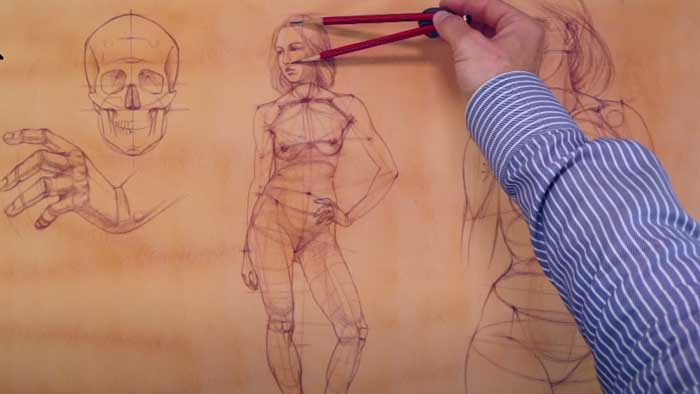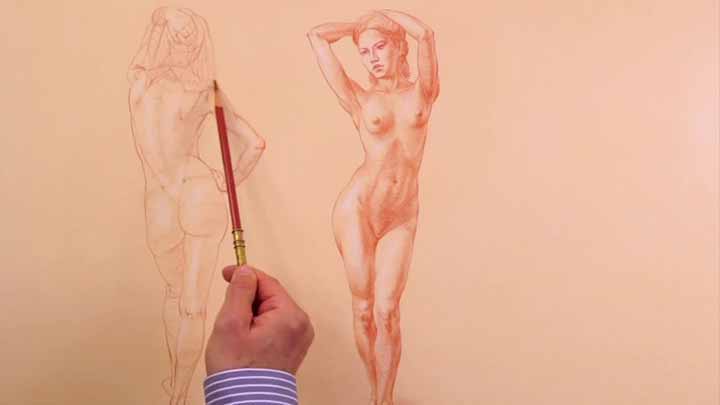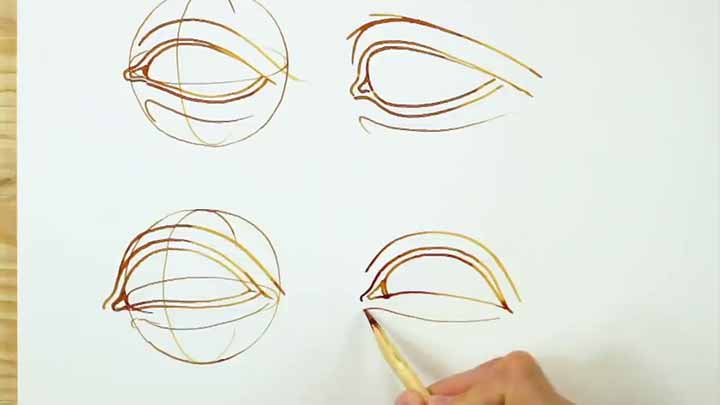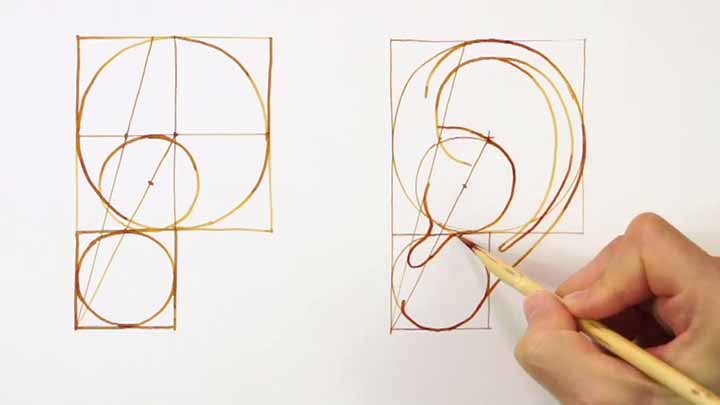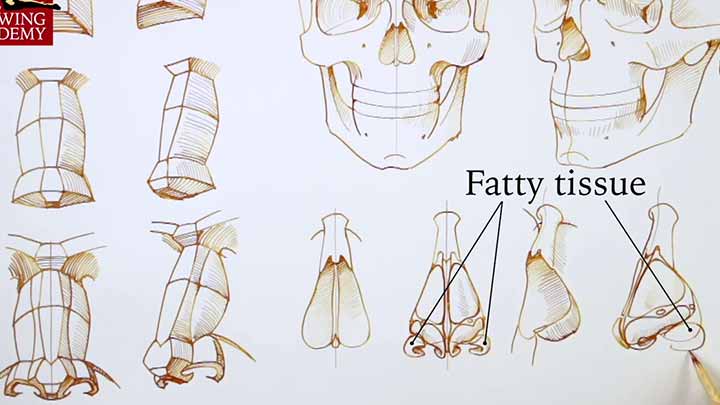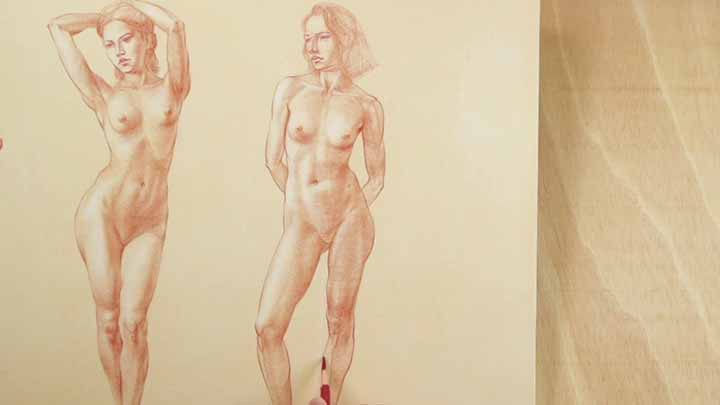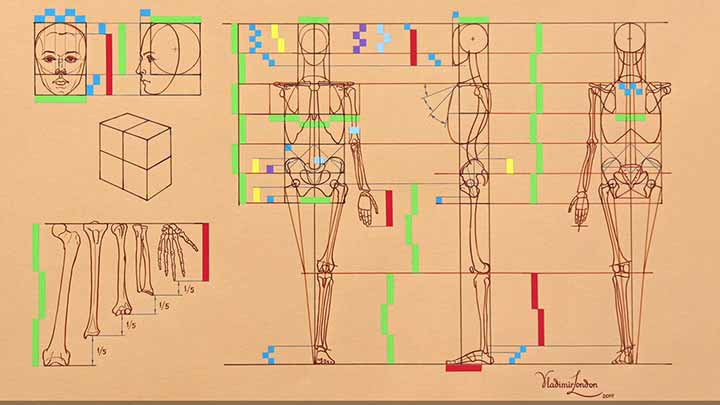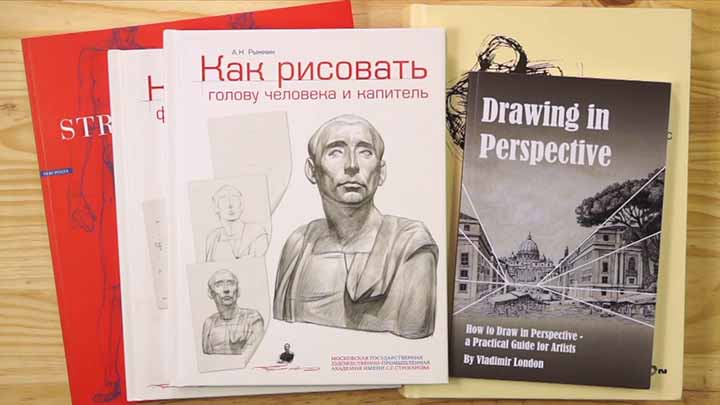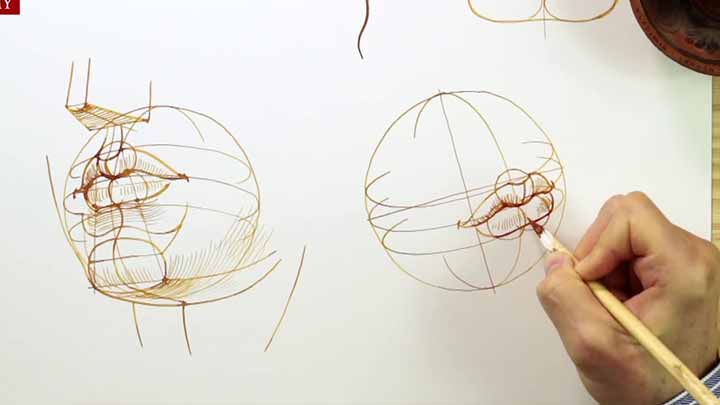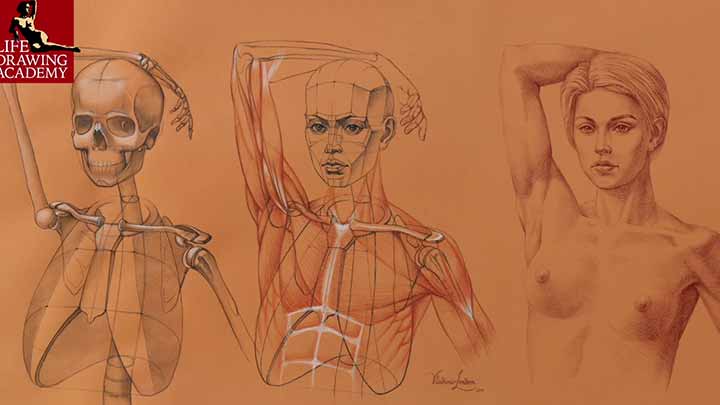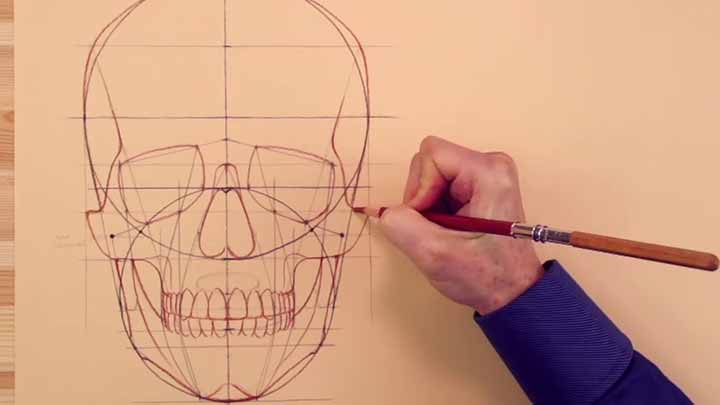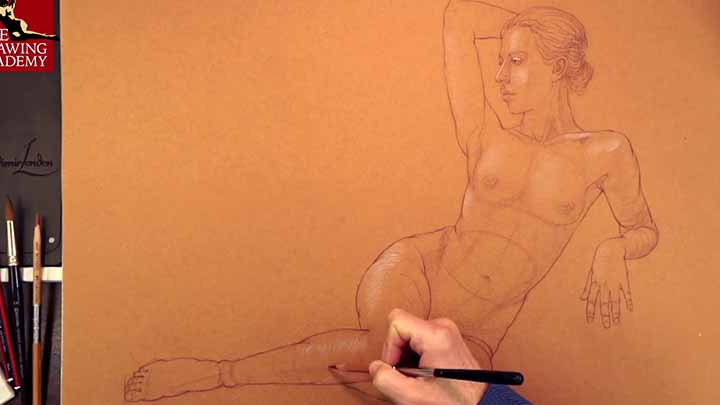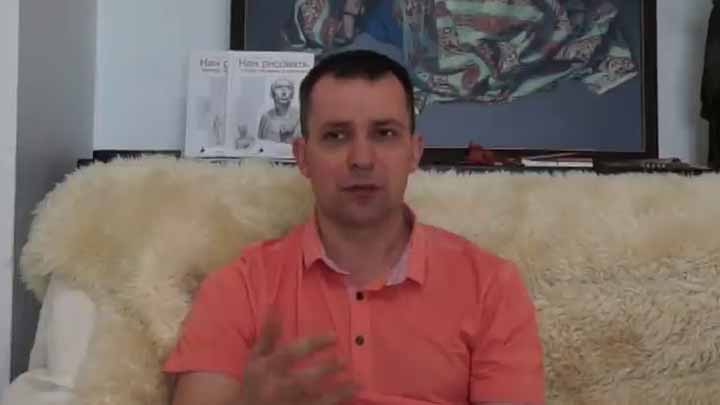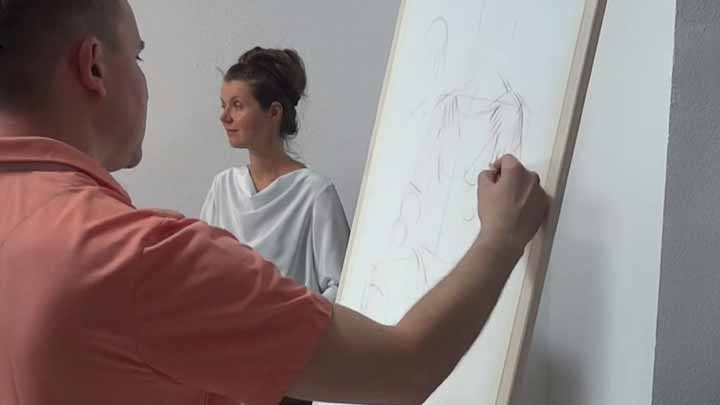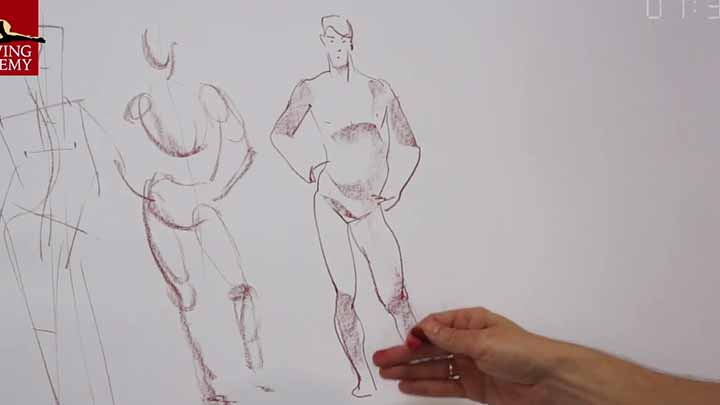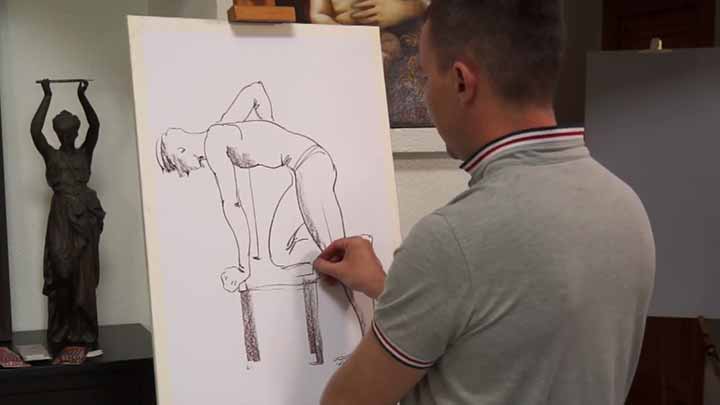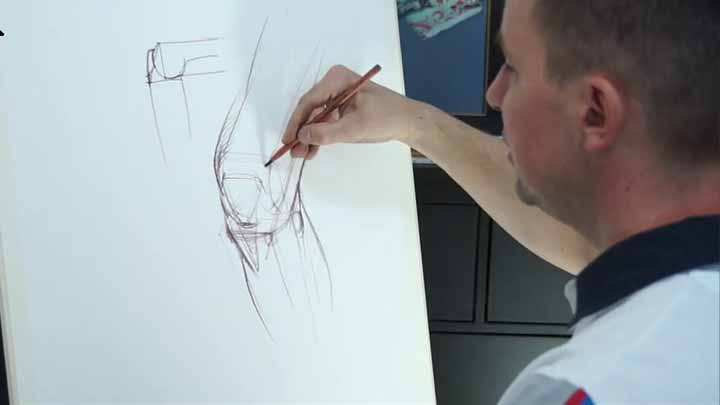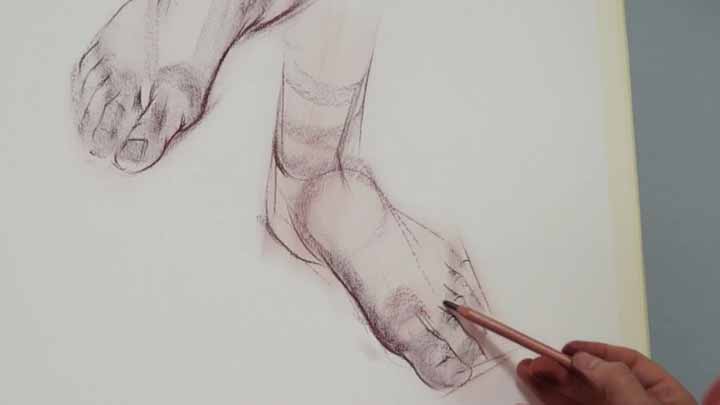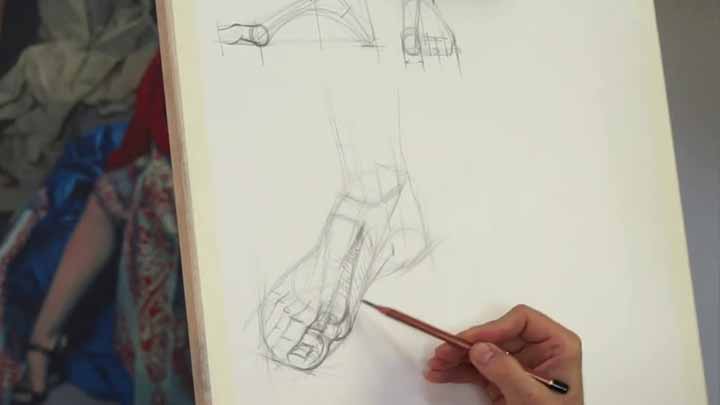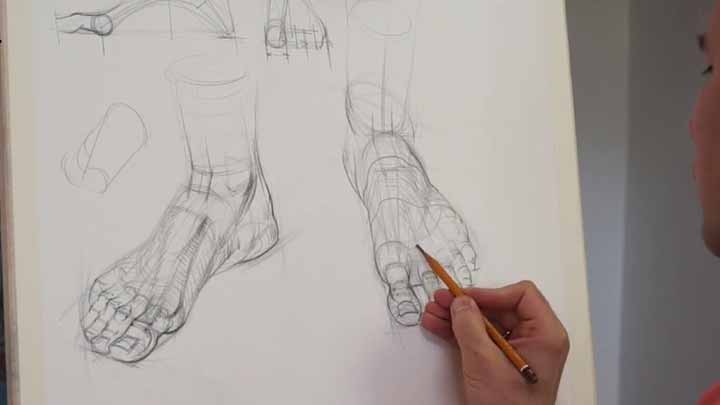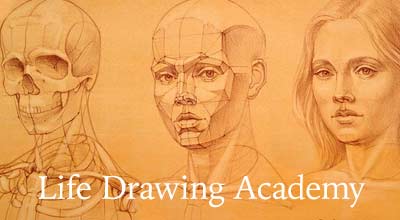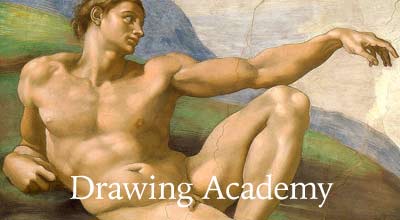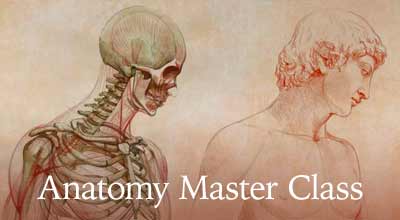How to Draw Videos
How to Draw a Girl with Correct Proportions
As you can see in this lesson, understanding proportions and anatomy aids in the gradual construction of a figure. Even though I'm drawing from life, a model isn't as important as the knowledge I'm using to the picture. Watch Video »How to Draw a Standing Figure Back View
In this video, you will discover how to draw a back view of a standing model. The measurement unit helps to find the pit of the neck and the height of the shoulder blades. When drawing a model's back from life, it is important to locate the shoulder blades. Their location helps to pinpoint the shoulder joints.
Watch Video »How to Draw Eyes
In this video, you will discover how to draw eyes in a realistic manner. I will make sketches in reed pen and sepia ink, so you will clearly see all the lines. An eye has an asymmetrical shape. Its top and bottom points are not on the same vertical line but shifted off-center in opposite directions.
Watch Video »How to Draw Ears
In this video, you will discover how to draw ears. I will draw in reed pen and sepia ink. This way, you will clearly see all lines. I will now show how to draw an ear in the front view. The helix curves outward, and the antihelix might partly cover its outline. The lobule outline defines the shape of the ear's lower third.
Watch Video »How to Draw a Nose
In this video, you will learn how to draw a nose. The shape of a nose can be oversimplified as a prism. Here's its front view. The top and bottom sides of this prism are isosceles trapezoids, which means they have the same base angles, so the prism's lateral sides are equal in size. The anatomy of the nose may display different variations in its geometry.
Watch Video »How to Draw a Proportionate Figure
The distance from the pit of the neck to the pubic bone is the same as from the toes to the top of the kneecap. It is also the same as from the kneecap to the top of the pelvis. This proportion locates the kneecap. The line between the two knees has a tilt. It follows the inclination of the pelvis.
Watch Video »Human Body Proportions for Artists
In this video, we will continue discovering different canons of human body proportions. This particular canon is inspired by Robert Beverly Hale, an American artist and instructor of artistic anatomy.
Watch Video »Anatomy and Life Drawing Books for Artists
In the Life Drawing Academy, we often receive questions about books we would recommend on the topics of anatomy for artists and figurative drawing. This video will answer such questions. Here are several books in various languages that we like and advise our students to check out. You don't have to purchase those books..
Watch Video »How to Draw a Mouth
In this video lesson, you will discover how to draw from life by depicting the masses or volumes of a figure. The third sitting pose will complete this artwork. There are many different ways in which artists draw figures from life. In this example, I will show the way when a figure is not built using axes, proportions, measurements, alignments, or signs but is created with organic shapes that represent masses of body parts.
Watch Video »How to Draw Shoulder Girdle Muscles
In this video, you will learn how to solve the challenge of depicting a shoulder girdle with the necessary knowledge of its anatomy. In the Life Drawing Academy, you will see multiple video lessons where a model has raised arms. Drawing what you see seldom helps to draw a figure realistically.
Watch Video »How to Draw Proportions of a Skull
In this video, you will discover the proportions of a human skull. This lesson is special, because some of the methods of drawing a skull were invented by me and are unique to this course.
Watch Video »How to Draw a Female Model from Life
In this video, you will discover how to draw a reclining pose. This is quite a challenging pose, and in this lesson, you will see how to portray such poses. to tell a story of bones and muscles in life drawing, you need to know the language of anatomy for artists. If you want to learn it fast, Anatomy Master Class is a great course.
Watch Video »How to Learn Good Drawing Skills
Drawing simple objects prepares students for more advanced topics like drawing a human eye, for example. Because an eye has a spherical shape and students already know how to draw a sphere, depicting an eye is a not a great leap from simple objects to human body forms. If an adult decides to learn drawing, his or her way to art would be very tough.
Watch Video »How to Draw a Clothed Figure
Folds of draperies that cover a human body make the artist's job harder. So, in this video lesson, I will show you how to draw a clothed figure. I begin with the main proportions of a model's body—its width and height. This drawing is about draperies and folds—it is not a portrait, so the head and hands will be omitted.
Watch Video »How to Make Fast Figure Sketches
To make a good, short gesture sketch of a pose in five to ten minutes, or even in one minute, you need to follow certain rules and sequences of drawing steps. To make good gesture sketches, you need to know a human body's proportions. All these things are a set of rules that you need to have in your head.
Watch Video »How to Sketch from Life
This is a very dynamic pose, and the usual proportion of how many times a head fits into a body doesn't work here as it does in figures that are standing upright. Some artists start drawing such poses with a quick gesture outline of the whole body to mark the main proportions and locations of body parts.
Watch Video »How to Draw Knees
In this video lesson, you will learn how to draw realistic knees from life with the necessary knowledge of this joint's proportions and anatomy. When drawing a knee, we have two big volumes—the upper and lower leg. The upper leg is facing the viewer and can be simplified as an elongated cuboid shape in perspective.
Watch Video »How to Draw Feet in Sanguine
Even though it is a fast sketch, we can pay attention to an aerial perspective. This kind of perspective describes the proximity of objects to a viewer. Those parts of an object that are closer to a viewer, should be drafted with more strength and contrast. Of course, on such a shallow object like a foot, you won't see an aerial perspective in life.
Watch Video »How to Draw Feet
In this video lesson, we will draw a foot from different angles of view. First, we will examine the construction of a human foot, and then we will use that knowledge to draw a foot. The cross-section of a foot looks like an arch. The whole weight of a human figure rests on two areas where the feet touch the ground—the toes and the heels.
Watch Video »How to Draw Human Feet
In this lesson, we will make another drawing of a foot from a different point of view. This time the foot will point to the viewer. There is one common mistake in many beginners' drawings—paying very little attention to individual toes. If your task is to portray a human foot realistically, you have to be prepared to invest great efforts in drawing every toe with the necessary detail.
Watch Video »